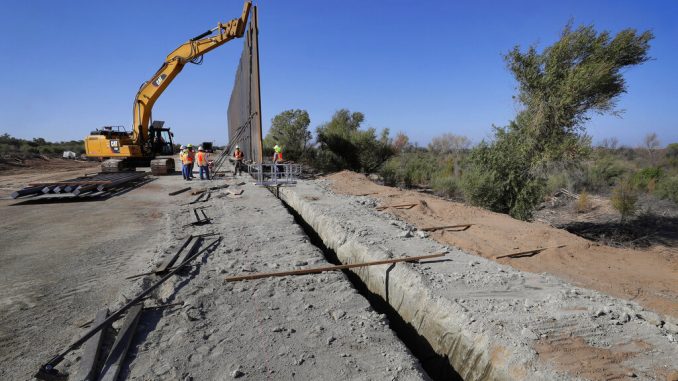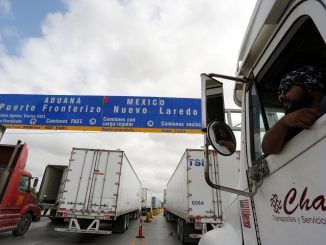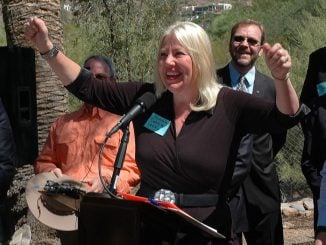
PHOENIX — The federal Bureau of Land Management said on Tuesday that it has transferred over 65 acres of public land in Arizona and New Mexico to the Army for construction of border wall infrastructure.
The agency says it’s now handing over 53 acres in Yuma County, Arizona, that is needed to install power and other utilities around the border wall there. Another 12.7 acres in Hidalgo County, New Mexico, were transferred so that the Army could install power and other utilities along with engineering or roads that provide access to the border wall project there.
This marks the third time in the past year that the agency has transferred public land to the military for border wall-related construction. The first was in September 2019, when it transferred 560 acres in the same two states, and the second was last month.
William Perry Pendley, the agency’s deputy director for programs and policy, said the agency has prioritized working closely with the Department of Homeland Security and the military to minimize impacts on wildlife and natural resources on land it manages.
“Where impacts cannot be avoided, DHS and DOD have demonstrated their commitment to mitigating them,” said Pendley said in a statement.
The agency, which manages 245 million acres of public land total, says the land transfer is in part because of border security concerns and in response to environmental impacts it says are caused by illegal border crossings.
The Trump administration aims to build 450 miles of barriers along the southern border. Most of the new construction entails 30-foot steel fencing.
Environmental and conservation groups, along with Native American tribes, have criticized the government heavily for waiving laws to build on protected lands.
Brian Segee, a senior attorney at the Center for Biological Diversity, said the land management bureau should be safeguarding the public lands, “not handing them over to be butchered for the border wall.”
The center and others have sued the Trump administration over its use of military funds to build border barriers, saying it is illegal.
“The roads, lighting and other infrastructure being installed along the borderlands are a disaster for wildlife and communities and an absurd waste of money. The agency’s attempt to spin it otherwise is laughable,” Segee said in a statement.



